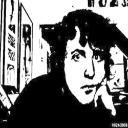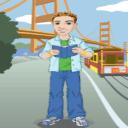Yahoo Answers is shutting down on May 4th, 2021 (Eastern Time) and beginning April 20th, 2021 (Eastern Time) the Yahoo Answers website will be in read-only mode. There will be no changes to other Yahoo properties or services, or your Yahoo account. You can find more information about the Yahoo Answers shutdown and how to download your data on this help page.
Trending News
I've been reading about the double slit experiment. Can anyone tell me what an "observer" is?
I've just been reading about the double slit experiment. I'm not really knowledgeable about physics in general. As far as I understand, at some point during the experiment, there can be an observation of the process, before observing the end result. Whether or not someone observes the experiment at this point greatly affects the outcome. How does someone perform this experiment-affecting observation? What instruments are used?
I'm finding these results profoundly counter-intuitive. I think the key issue is that I'm not clear on what constitutes an observation, capable of affecting the results. Does anyone here know what quantum physicists think would happen if:
a) Someone blind was to make the observation.
b) An animal were to make the observation.
c) Assuming the result is measured by some machine off which a person simply reads the result, a person looks does not look at the results before reading the photographic plate.
d) The machine is turned off.
e) One person looked at the photographic plate before someone else looked at the machine's results.
f) Another machine capable of performing the observations via a different method is introduced instead.
Help me out here. Thanks in advance!
@Mentaculus: Thank you for replying, even if the answer is unsatisfying! I was reading here:
http://www.highexistence.com/this-will-mindfuck-yo...
Under the "Want even further proof" section, they said that an experiment was conducted in which physical changes caused by the observer being present would have to travel at quadruple the speed of light. Again, I'm not really a physics person, but this would effectively eliminate this possibility, right?
I paid particular attention to this, because physical changes was my first thought as to how this was possible.
5 Answers
- 8 years agoFavorite Answer
Ah, observation ... one of the most fundamental differences between quantum mechanics and our comfy, classical world where no bizarre quantum shenanigans occur.
In short: in classical mechanics (and the world that we're used to), it doesn't make a difference whether or not someone is there to observe an event. If you drop a pencil, you expect it to fall the exact same way whether or not you actually see it drop. If a tree falls in the forest and nobody is around to hear it, does it make a sound? Setting aside the profound philosophical questions, classically, the answer is yes: the tree will emit a sound wave irrespective of the presence of an observer.
In quantum mechanics, we are no longer dealing with discrete particles and well-defined objects with fixed, immutable properties; instead, we postulate the existence of a "wave function" which represents a set of continuous possibilities. Take the double-slit experiment: the photon could hit here ... or here ... or over there. Classically, the photon would go through a single slit ... but in quantum mechanics, the wave function travels through all of the slits, and only by "observing" do we force a wave function collapse that tells us where the photon is.
This begs the question: what IS observation? Does it require a sentient, rational, thinking will to qualify, as Heisenberg evidently thought? Experiments seem to suggest that this isn't the case. So far as we can tell, the only way to really "observe" a system at work is to bounce something else off of it, and by doing so measure the position and the momentum - the two most fundamental physical quantities - of the observed object. So it seems that if a) or b) happened, nothing would change as long as the observation - the interaction of the system with an outside particle or wave - occurred. (In other words, as long as a quantum interaction takes place, the system is observed and reacts accordingly even if no individual is there to see it.)
This is one of the most fundamental questions in quantum mechanics, and my answer is probably not entirely satisfactory. Some of the greatest minds of our time have debated this very question with no sure conclusion.
- The MentaculusLv 48 years ago
That is a fantastic question, with basically no satisfying answer. It is still a very debated aspect of quantum mechanics.
The most sensible explanation I have heard is this--in order to "observe" something, you must interact with it. Usually by bouncing a photon or electron off of it. And so some believe that it is this physical interaction of particles that causes the wave function to collapse and the particle to take on a single state, rather than any actual act of "observation". But this is by no means gospel, and there are many other interpretations of how and why this "observer effect", and the wave function collapse, occur.
This is the gist of what I know about it, but I'm sure there are much more qualified and knowledgeable people who can give more insight.
- Anonymous5 years ago
Actually, Young's double-slit experiment shows the wave nature of light. Assuming they are particles, each one passes through only one slit but, nevertheless, the pattern that emerges shows the interference pattern effect of both slits, much as a water wave produces interference patterns after passing through two openings close together. The single particle nature of light was best shown by the Photoelectric Effect where a light particle of a particular energy ( frequency ) causes emission from a surface of an electron whose energy is correlated with that of the light "quantum".
- How do you think about the answers? You can sign in to vote the answer.
- gp4rtsLv 78 years ago
To get more on this, I suggest you read "The Elegant Universe" by Brian Greene. There is a good discussion of this problem.




